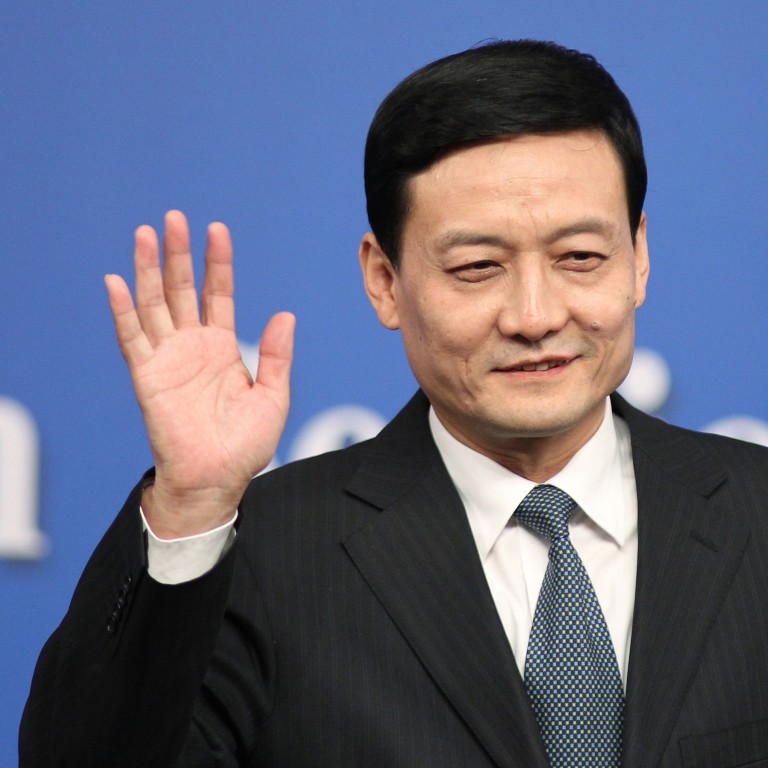
China set to pick new head for state-owned enterprise regulator amid growing calls for reform
- Shake-up at the top of State-owned Assets Supervision and Administration Commission comes as US trade war increases pressure to overhaul sector
The regulator for China’s state-owned enterprises is to get a new leader amid growing calls for reform from both home and abroad.
China has sought to slim down its state sector with the aim of creating a smaller number of “world-class” firms capable of competing internationally, but analysts say the effort to create more flexible management and ownership structures has put the long-term future of the State-owned Assets Supervision and Administration Commission (Sasac) in doubt.
Xiao Yaqing, Sasac’s outgoing chief, has been appointed head of the country’s market regulation administration, state media reported on Saturday.
He will succeed Zhang Mao, who is retiring at the age of 65.
Beijing has yet to announce Xiao’s successor.
China economy to get more stimulus to fight trade war tariffs? Official drops hint help may come
Chinese news outlet Caixin reported that Sasac’s Communist Party committee chief Hao Peng is now in charge of the agency’s operations.
Xiao, 60, was appointed to head Sasac in 2016, having previously been a deputy secretary general in the cabinet office and chairman of Chalco, a leading state-owned enterprise.
In the past three years he oversaw the reform of the ownership structures of state enterprises, several mergers and tried to reduce overcapacity in the steel and coal sector.
Assets held by China’s state-owned enterprises reached 58.2 trillion yuan (US$8.4 trillion) last year, up from 54.5 trillion yuan in 2017. The net profits of those companies meanwhile jumped 15.7 per cent from 2017 to reach 1.2 trillion yuan last year.
Although President Xi Jinping’s administration pledged in 2013 to make the market the determining factor for allocating resources, the private sector has complained that state-run firms are still being given preferential treatment when it comes of borrowing from banks.
The reshuffle comes amid the ongoing trade war with the United States, which has long complained about Beijing’s support for its state-owned enterprises.
The American Chamber of Commerce in China and the US Chamber of Commerce recently issued a joint report calling on Washington to address structural challenges in China’s economic practices, which the groups say are unfair and restrictive for US companies.
Li Jin, chief researcher with the China Enterprise Research Institute, a private think tank, said the ongoing trade war has added pressure to China to accelerate its reforms of state-owned firms, but Beijing’s plans for reform will address many of Washington’s complaints.
China turns attention to jobs as trade war casts shadow over economy, with Li Keqiang demanding jobs for graduates, ex-military and more
“The more pressing question for the next Sasac chief is whether to delegate more authority to reform from Sasac to state-owned firms,” Li said.
Yang Senping, a member of Guangdong province’s Chinese People’s Political Consultative Conference and a professor at the school of economics and business administration at Jinan University, said the economic challenges brought by the trade war made it more pressing for Xiao’s successor to urgently implement comprehensive reforms and fully embrace the market.
“The central authorities needs go quickly to reduce its shareholding in those industries that can allocate resources by the market and let them return to the market.
“Only in this way can we maximise efficiency and … promote the domestic economy,” Yang said.
Additional reporting by Echo Xi and Reuters

